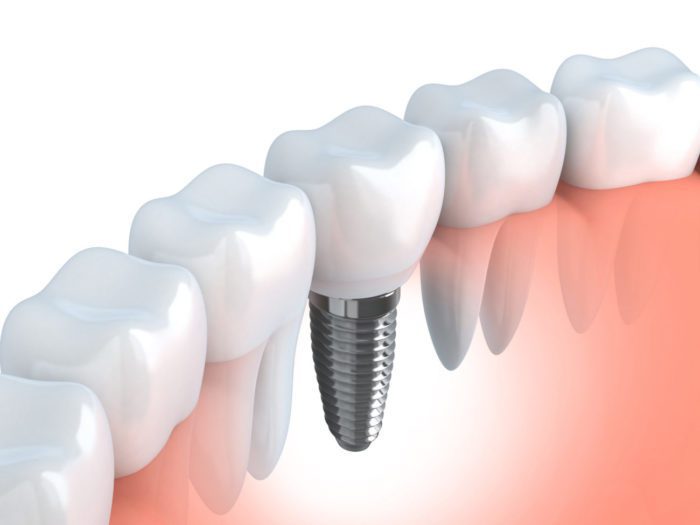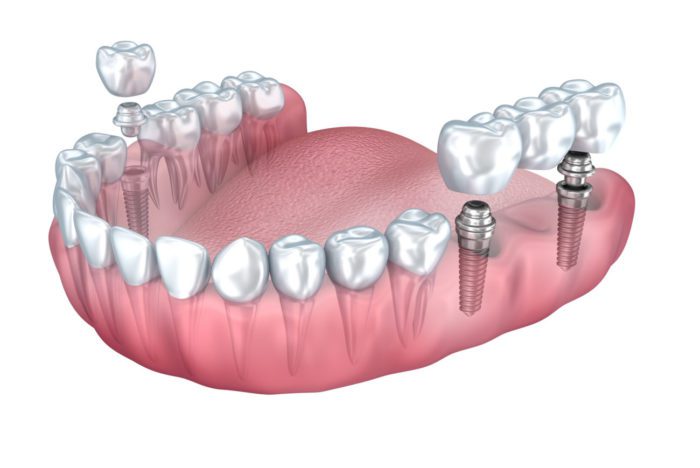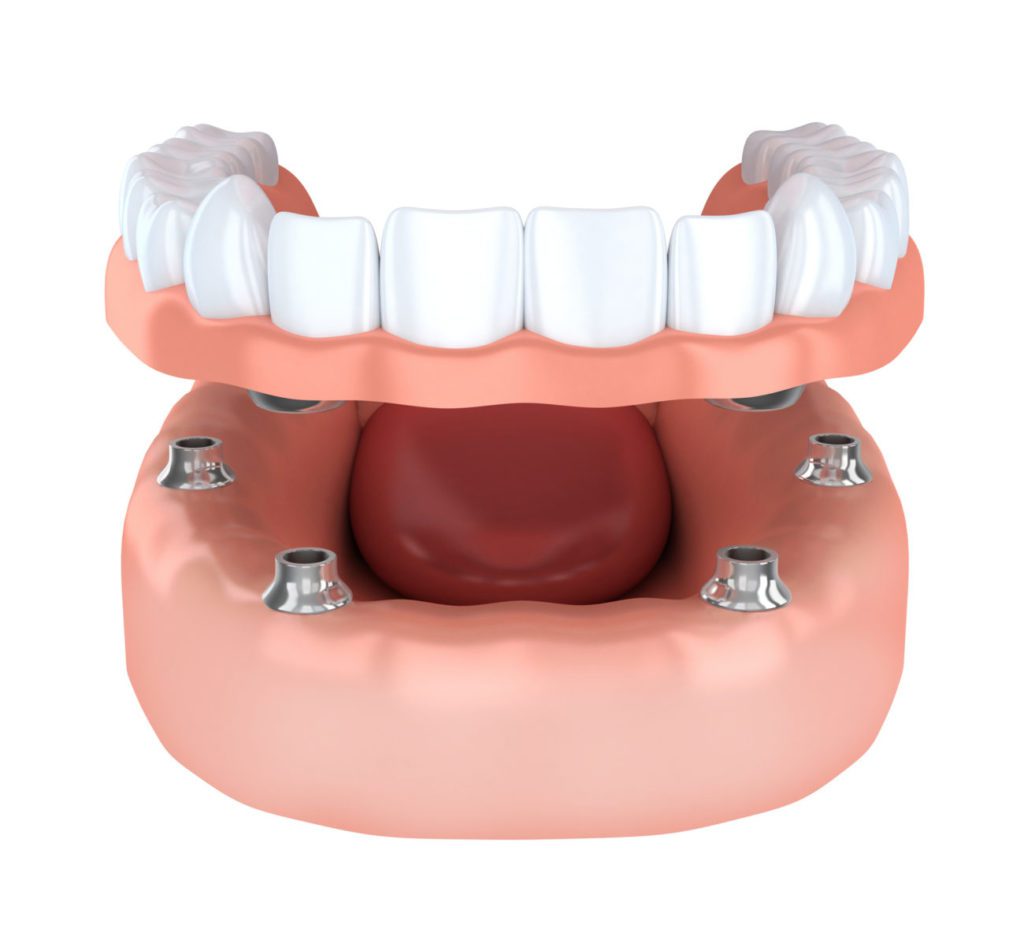If you’re missing permanent teeth or dealing with loose dentures, you might need an implant restoration. We offer different dental restoration options based on your needs. Dental implants are often the best choice for replacing missing teeth because they work really well.
Implants can replace one missing tooth or secure a whole row of teeth. Here’s a look at the types of dental implants we offer at Cosmetic & Advanced Dentistry in Owings Mills and Baltimore, MD.

Types of Dental Implants in Owings Mills, MD
Whether you’re missing one tooth or several, we can provide implant treatment to meet your needs. We will create a custom plan based on your goals and number of missing teeth. Here’s how we can help restore your smile.
Single Tooth Replacement
If you need to replace one missing tooth, you have a few options. One way is with a dental bridge, which involves preparing the teeth next to the gap. A bridge consists of three pieces: two crowns on the ends and a fake tooth in the middle. This method requires grinding down healthy teeth to fit the bridge.
A better option is a single dental implant. This involves placing a metal post into your jawbone, which takes three to six months to heal and bond with the bone. After that, we attach a small connector called an abutment and then place a custom-made crown that looks just like your natural teeth.
Multiple Missing Teeth Solutions

For multiple missing teeth, you can use partial dentures or a dental bridge. A bridge, as mentioned, requires reshaping healthy teeth to fit the bridge.
Partial dentures can fill gaps but are removable and may shift around. They don’t replace the tooth root, which means they don’t help maintain the jawbone like implants do.
You don’t need to replace every missing tooth with its own implant. Instead, we can use a few implants to support a whole row of teeth. For several missing teeth in a row, an implant-supported bridge is a good choice. It replaces the missing teeth without affecting the healthy ones.
If your missing teeth are spread out, we’ll create a custom solution. This might include a mix of implant-supported bridges or crowns. For single missing teeth in different areas, we recommend implant crowns. For a row of missing teeth, implant-supported bridges work best.
Full Arch Replacement with Two Or More Implants

If you’re missing all the teeth in one arch, traditional dentures are usually the go-to solution. However, dentures can feel bulky and take some time to adjust to. They also need daily care and eventually need to be replaced.
A better choice is implant-supported dentures. These are more stable and durable compared to traditional dentures. Dr. Doroshenko can place implants at angles that use your jawbone effectively. Sometimes, a patient may need bone grafting to add more bone tissue if they have bone loss.
We use the All-on-Four® method for placing dentures with implants. This technique uses just four implants to hold a full set of teeth securely. It provides strong support with less need for bone grafting, making it more comfortable and reliable than regular dentures.
Implant-supported dentures won’t shift or slip. They let you eat, speak, and smile with confidence. They also keep your jawbone healthy by stimulating it, which prevents bone loss and maintains your facial structure.
Many patients find that implant-supported dentures improve their quality of life by letting them enjoy their favorite foods and social activities without feeling self-conscious. The All-on-Four® method also usually needs fewer visits compared to other implant techniques. Our team will help make the transition to your new dentures smooth and successful.
What Type of Dental Implant Will I Need?
This is best discussed during a consultation with Dr. Ed Lazer at his Owings Mills, MD, dental office. The type of dental implant you need depends on several factors. These include:
- How many teeth you’re missing
- Where the missing teeth are located
- The health of your gums and jawbone
Every patient is different. We’ll need to have a detailed consultation to decide the best implant type for you.
How Long Do Dental Implants Last?
Dental implants themselves should last a lifetime if you take good care of them. You may need to replace the crowns, bridges, or dentures that are attached to the implants over time. To keep your implants in good shape, practice good oral hygiene, avoid tobacco products, and visit us regularly.
What are the signs I might need a full arch dental implant solution?
If you’re missing most or all of your teeth in one arch, or your existing dentures are loose and uncomfortable, you may be a good candidate. Other signs include difficulty chewing, speech problems, or failing dental work across multiple teeth. Full arch implants provide stability, improve function, and help preserve your jawbone. A consultation will determine if this long-term solution is right for you.
What’s the difference between an implant crown and a traditional crown?
A traditional crown covers a natural tooth that’s been shaped or treated, such as after a root canal. An implant crown, however, attaches to a dental implant that replaces a missing tooth root. The implant crown doesn’t rely on your natural tooth structure, making it ideal for fully replacing lost teeth. Both crowns restore function and appearance, but are supported differently.
Can dental implants be used with existing partial dentures?
Yes, in many cases, implants can be added to support or stabilize an existing partial denture. Implants can help improve fit, prevent shifting, and reduce pressure on the gums. Sometimes, your current denture can be modified to connect with the new implants. We will evaluate whether your partial is suitable for this upgrade or a new one is needed.
How many implants do I need for a full upper or lower arch?
Most full-arch implant solutions use 4 to 6 implants to support a fixed denture or bridge. The number depends on bone quality, arch size, and the type of restoration used. Techniques like All-on-4 use just four implants in strategic positions. Dr. Lazer will determine the best number based on your anatomy and treatment goals.
Call Cosmetic and Advanced Dentistry at (410) 697-6290 or schedule a dental implant consultation online. We will help you see which dental implant restoration is best for you.
To learn more about dental implants, see:
